featured
SCOTUS cannabis & guns case gets delay request (Newsletter: October 24, 2025)
Published
2 hours agoon
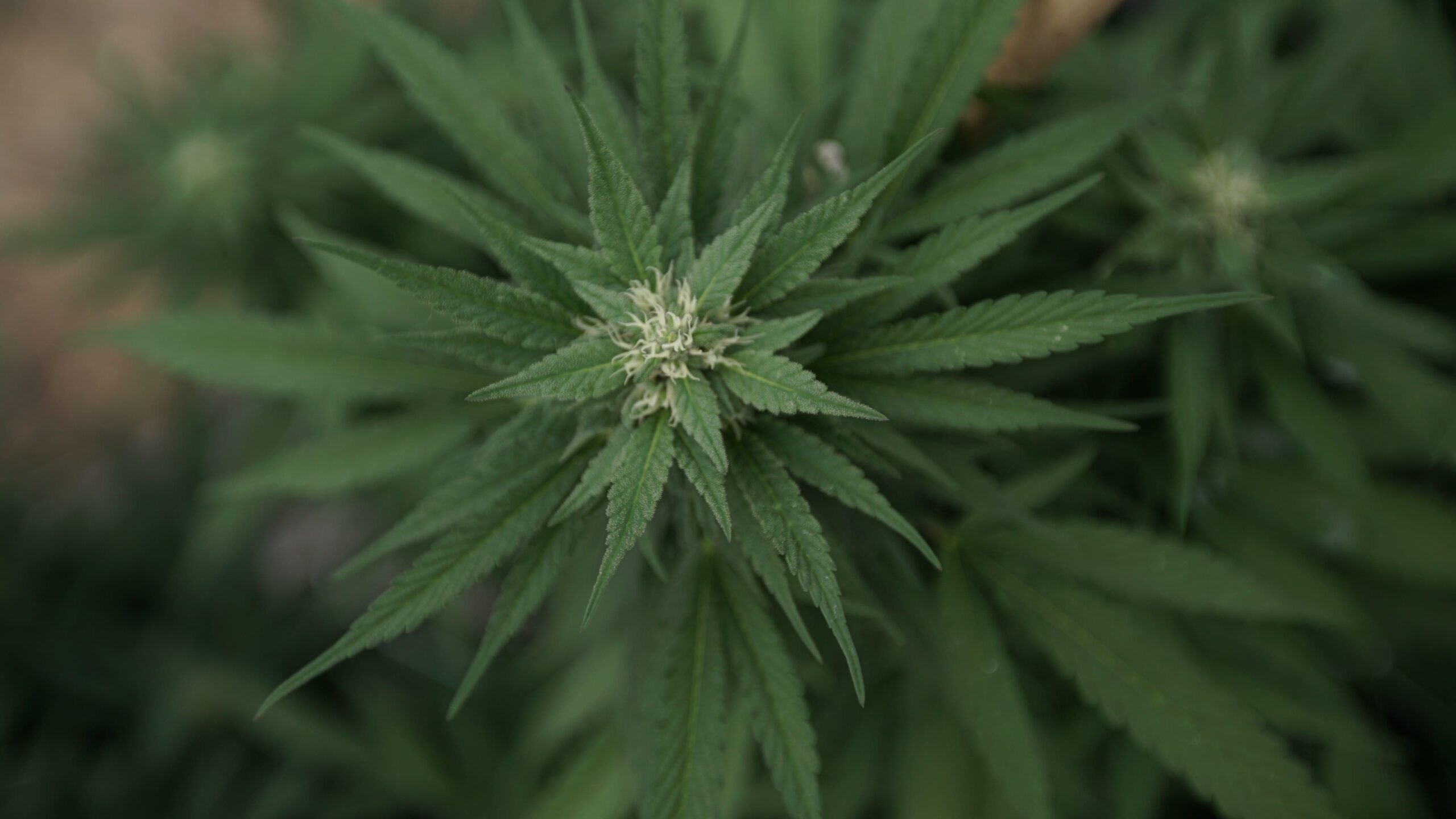
Whiskey company cites marijuana in scaling back biz; OH psychedelics grant; Study: Cannabis tied to reduced alcohol liver disease
Subscribe to receive Marijuana Moment’s newsletter in your inbox every weekday morning. It’s the best way to make sure you know which cannabis stories are shaping the day.
Your support makes Marijuana Moment possible…
Hold on, just one second before you read today’s news. Have you thought about giving some financial support to Marijuana Moment? If so, today would be a great day to contribute. We’re planning our reporting for the coming months and it would really help to know what kind of support we can count on.
Check us out on Patreon and sign up to give $25/month today:
https://www.patreon.com/marijuanamoment
/ TOP THINGS TO KNOW
Trump administration Solicitor General D. John Sauer submitted a request for a delayed timeline to file briefs in a marijuana and gun rights case that the Supreme Court is taking up—with the respondent’s lawyers agreeing to the extension.
The Ohio Department of Behavioral Health is supporting a program to educate first responders, police and healthcare professionals about how to deal with adverse psychedelic experiences with a $400,000 grant.
Whiskey company Heritage Distilling is scaling back its operations, citing “consumer shifts toward reduced alcohol consumption and alternative products, including marijuana.”
A new study found that marijuana use is “associated with a reduced risk of [alcohol-associated liver disease], with the greatest risk reduction seen in patients with” so-called “cannabis use disorder.”
- “Cannabis use was linked to lower risks of ALD, liver-related complications and death compared to non-cannabis users.”
NORML activist Chris Goldstein argues in a new Marijuana Moment op-ed that New Jersey gubernatorial candidates in next month’s election “barely seem to be paying attention” to issues of concern for cannabis consumers.
West Virginia officials are refusing to allocate $34 million in medical cannabis revenue that is supposed to support drug treatment, research and law enforcement programs over concerns about federal prohibition.
- “The money in the fund will remain unallocated until federal law changes.”
/ FEDERAL
Rep. Brittany Pettersen (D-CO) inserted remarks into the Congressional Record congratulating an attorney for being named “lawyer of the year” and noting that he “helped create regulations for recreational marijuana.”
/ STATES
Minnesota Gov. Tim Walz (D) signed another cannabis compact with a tribe.
The Kentucky legislature’s Interim Joint Committee on Health Services held a hearing on the rollout of the state’s medical cannabis program.
A Wisconsin senator said he’s optimistic a medical cannabis legalization bill will pass the Senate.
Rhode Island’s former top marijuana regulator announced she is running for attorney general.
Washington, D.C. regulators adopted changes to medical cannabis rules.
The New Mexico Medical Cannabis Advisory Board will meet on Monday.
—
Marijuana Moment is tracking hundreds of cannabis, psychedelics and drug policy bills in state legislatures and Congress this year. Patreon supporters pledging at least $25/month get access to our interactive maps, charts and hearing calendar so they don’t miss any developments.![]()
Learn more about our marijuana bill tracker and become a supporter on Patreon to get access.
—
/ LOCAL
New York City mayoral candidates weighed in on safe consumption sites for illegal drugs during a debate.
/ INTERNATIONAL
Zurich, Switzerland officials are moving to extend a legal cannabis sales pilot project.
/ SCIENCE & HEALTH
A study highlighted the “potential of [unsaponifiable matter from hemp seed] as a natural anti-obesity therapeutic, offering new avenues for the treatment and prevention of obesity and related metabolic disorders.”
A study found that “MDMA increases feelings of trust in the social world.”
/ BUSINESS
Emerald Intel acquired Cannabiz Media.
IM Cannabis Corp. signed a non-binding indicative term sheet to acquire a 60 percent equity interest in a quantum computing bio data company.
Circle K plans to begin selling hemp-derived THC drinks nationwide in 2026.
Village Farms International, Inc. launched a one-way aroma valve built directly into its cannabis flower packaging.
Make sure to subscribe to get Marijuana Moment’s daily dispatch in your inbox.
Photo courtesy of Chris Wallis/Side Pocket Images.

Author: mscannabiz.com
MScannaBIZ for all you Mississippi Cannabis News and Information.
You may like
-


Older Adults Increasingly Identify as Cannabis Consumers
-


Kentucky Governor Touts Surge In Medical Marijuana Patient And Business Approvals As State Prepares For Program Launch
-
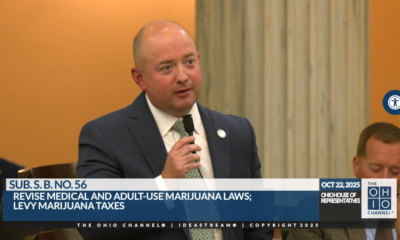

Ohio House Passes Cannabis, Hemp Bill Resulting From ‘Venn Diagram From Hell’
-


What To Know About Cannabis And A Brain Aneurysm
-


MariMed to Expand Brand Distribution to New York
-


Time for a Cannabis Reboot: Local Roots, Fair Markets, Real Change
featured
Older Adults Increasingly Identify as Cannabis Consumers
Published
19 minutes agoon
October 24, 2025

Nearly one in five middle-aged adults acknowledge consuming cannabis, according to data published in the American Journal of Preventive Medicine.
Investigators affiliated with Columbia University in New York analyzed results from the Health and Retirement Survey — a nationwide survey of older adults.
Researchers reported that 19 percent of adults aged 50 to 64, and six percent of adults over the age of 65 acknowledge having consumed cannabis products within the past 12 months. The findings are consistent with data published in July in the Journal of the American Medical Association, as well as with separate data provided by AARP, finding that rising percentages of middle-aged and older adults are consuming marijuana products.
The study’s authors also reported that 75 percent of respondents favored the use of medical cannabis, a finding that is also consistent with prior surveys, and that many older adults use cannabis therapeutically without consulting directly with their physician.
“It is not surprising that a growing percentage of adults consider cannabis to be a viable option in their later years,” NORML’s Deputy Director Paul Armentano said. “Many middle-aged and older adults struggle with pain, anxiety, restless sleep, and other conditions that cannabis products can mitigate. Many older adults are also well aware of the litany of adverse side-effects associated with available prescription drugs, like opioids or sleep aids, and they see medical cannabis as a practical and potentially safer alternative.”
Separate survey data published last year in the Journal of Primary Care & Community Health determined that most older adults hold positive perceptions about cannabis, and several recent studies show that marijuana use is frequently associated with quality of life improvements among seniors.
An abstract of the study, “Epidemiology of cannabis use among middle-aged and older adults in the United States,” appears in the American Journal of Preventive Medicine. Additional information is available from the NORML Fact Sheet, ‘Cannabis Use by Older Populations.’
Related

Author: mscannabiz.com
MScannaBIZ for all you Mississippi Cannabis News and Information.
featured
Kentucky Governor Touts Surge In Medical Marijuana Patient And Business Approvals As State Prepares For Program Launch
Published
1 hour agoon
October 24, 2025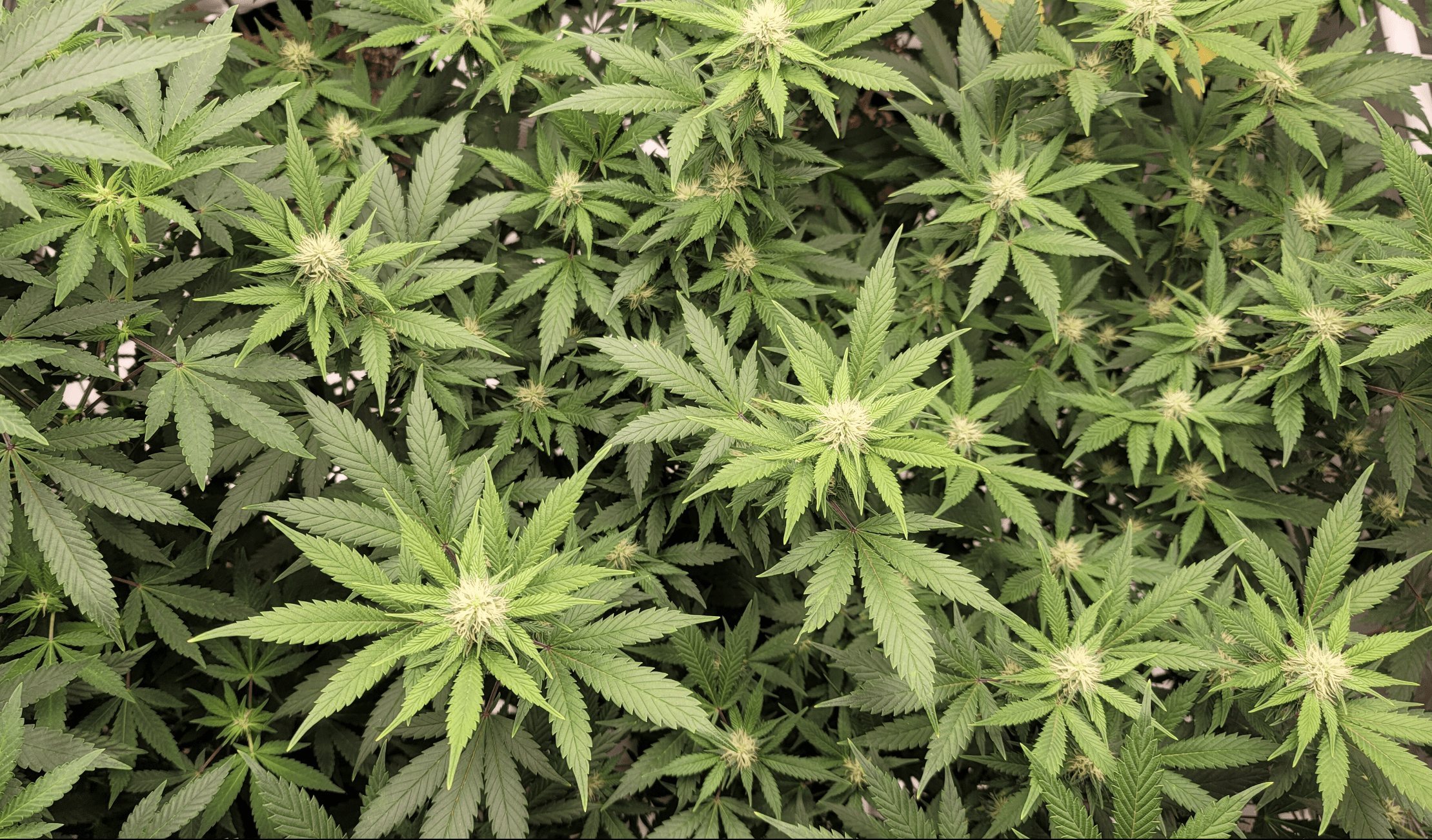
The governor of Kentucky is touting a milestone of registering more than 15,000 medical marijuana patients as the state’s program is set to launch—and he says officials are expected to have approved licenses for all four types of cannabis businesses to supply the market by next week.
During a briefing on Thursday, Gov. Andy Beshear (D) gave an update on the commonwealth’s progress to stand up the medical marijuana program. And in the nearly 300 days since the state started accepting patient applications, 21,000 electronic certifications have been processed. Of those, about 15,000 patients have been approved as card holders.
“Since taking office, my administration has been committed to providing access to health care and creating safe communities in Kentucky,” the governor said. “One of our priorities is to ensure that Kentucky suffering from PTSD and serious medical conditions like cancer or multiple multiple sclerosis can have safe access to medical cannabis as soon as possible to get the relief they need.”
Part of the success of the program rollout and large volume of patient certifications is the fact Kentucky now has about 500 doctors who are authorized to issue written medical cannabis recommendations.
“That number is set to grow as more health care providers complete training,” Beshear said.
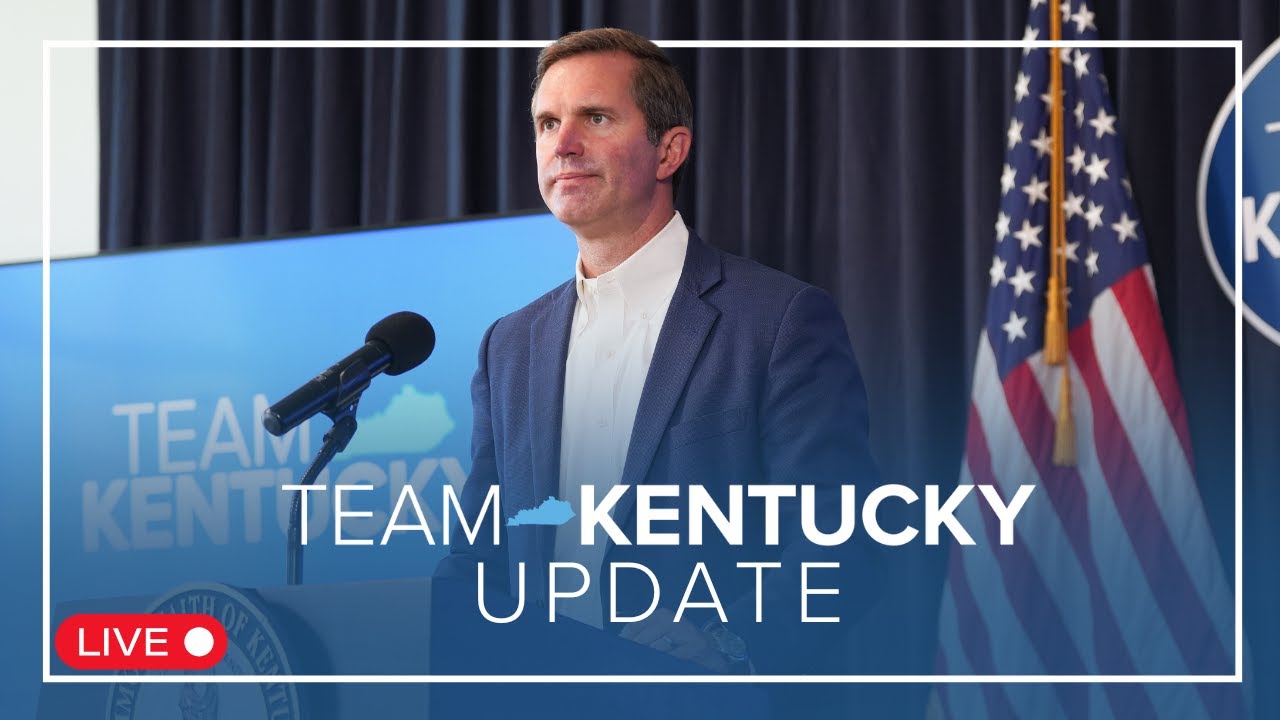
After obtaining a written recommendation, patients use an online portal to submit the information to the Cabinet for Health and Family Services, after which point officials review the application and issue a medical cannabis card.
“We’re seeing strong engagement from our medical community, which shows confidence in this program,” he said. “We’re also making progress when it comes to the supply chain.”
There are four licensing categories within the state’s medical marijuana program: cultivators, processors, safety compliance facilities and dispensaries. The governor said “by next week, Kentucky will have approved licenses in each and every category, which is great news.”
He added that the first processor license applicant will have their facility inspected for approval on October 29, which will “complete the program’s full process cycle from cultivation to dispensary.”
“We’re getting closer to delivering on the promise of safe medical cannabis for Kentuckians in need,” Beshear said.
A Kentucky medical marijuana cultivation facility harvested its first yield of cannabis earlier this month, the Office of Medical Cannabis (OMC) said.
Last month, Beshear said he thought medical marijuana would be available to Kentucky patients by the end of 2025.
“I think most of our dispensaries now have their home address [and] are set about where they’re going to be, but [for] some of the inspections that have to happen in dispensaries, they have to have product that’s there,” he said. “So I do believe they’ll be operating before the end of the year.”
Those comments came roughly a month after the governor announced that the state’s first medical cannabis dispensary was officially approved for operations, calling it “another step forward as we work to ensure Kentuckians with serious medical conditions have access to the medicine they need and deserve.”
He previously touted an earlier “milestone” in the state’s forthcoming medical marijuana program, with a licensed cultivator producing “the first medical cannabis inventory in Kentucky history.”
In July, Beshear sent a letter to President Donald Trump, urging him to reject congressional spending bill provisions that would prevent the Justice Department from rescheduling marijuana.
In the letter to the president, he emphasized that a pending proposal to move cannabis from Schedule I to Schedule III under the Controlled Substances Act (CSA) is something “you supported in your presidential campaign.”
“That process should be allowed to play out. Americans deserve leadership that won’t move the goalposts on them in the middle of the game,” Beshear said, noting that he was among the tens of thousands who submitted public comments in favor of the reform after it was initiated under the Biden administration, “demonstrating broad public interest in rescheduling.”
“I joined that effort because this is about helping people. Rescheduling would provide suffering patients the relief they need,” the governor said. “It would ensure communities are safer—because legal medical products reduce the illicit market. It would provide new, meaningful research on health benefits.”
Beshear also mentioned a letter to DEA he signed onto last year urging rescheduling, “because the jury is no longer out on marijuana. It has medical benefits.”
Back on the state level, the governor recently said he acknowledges that “it’s taken longer than we would have liked” to stand up the industry since he signed medical marijuana legalization into law in 2023.
In recognition of that delayed implementation, he recently signed an executive order to waive renewal fees for patients who get their cards this year so that they don’t get charged again before retailers open. And another order he signed providing protections for qualified patients who obtain medical marijuana outside of Kentucky “will stay in place.”
Beshear separately announced in May that the state has launched a new online directory that lets people see where medical cannabis dispensaries will be opening near them.
He emphasized that the state has been working to deliver access to patients “at the earliest possible date,” and that involved expediting the licensing process. The governor in January also ceremonially awarded the commonwealth’s first medical marijuana cards.
—
Marijuana Moment is tracking hundreds of cannabis, psychedelics and drug policy bills in state legislatures and Congress this year. Patreon supporters pledging at least $25/month get access to our interactive maps, charts and hearing calendar so they don’t miss any developments.![]()
Learn more about our marijuana bill tracker and become a supporter on Patreon to get access.
—
Meanwhile, the governor sent a letter to Kentucky’s congressional delegation in January, “urging them to take decisive action to protect the constitutional rights of our law abiding medical cannabis patients” by repealing the federal ban on gun possession by people who use marijuana.
That came after bipartisan Kentucky senators filed legislation that similarly called on the state’s federal representatives to take corrective action, which Beshear said he supports but would like to see even more sweeping change on the federal level.
The federal Bureau of Alcohol, Tobacco, Firearms and Explosives (ATF) warned Kentucky residents late last year that, if they choose to participate in the state’s medical marijuana program, they will be prohibited from buying or possessing firearms under federal law.
As far as the implementation of the state’s medical cannabis law goes, Beshear said in his State of the Commonwealth address in January that patients will have access to cannabis sometime “this year.” He also later shared tips for patients to find a doctor and get registered to participate in the cannabis program.
Health practitioners have been able to start assessing patients for recommendations since the beginning of December.
While there currently aren’t any up-and-running dispensaries available to patients, Beshear has further affirmed that an executive order he signed in 2023 will stay in effect in the interim, protecting patients who possess medical cannabis purchased at out-of-state licensed retailers.
During last year’s November election, Kentucky also saw more than 100 cities and counties approve local ordinances to allow medical cannabis businesses in their jurisdictions. The governor said the election results demonstrate that “the jury is no longer out” on the issue that is clearly supported by voters across partisan and geographical lines.
Photo courtesy of Mike Latimer.

Author: mscannabiz.com
MScannaBIZ for all you Mississippi Cannabis News and Information.
featured
Ohio House Passes Cannabis, Hemp Bill Resulting From ‘Venn Diagram From Hell’
Published
12 hours agoon
October 23, 2025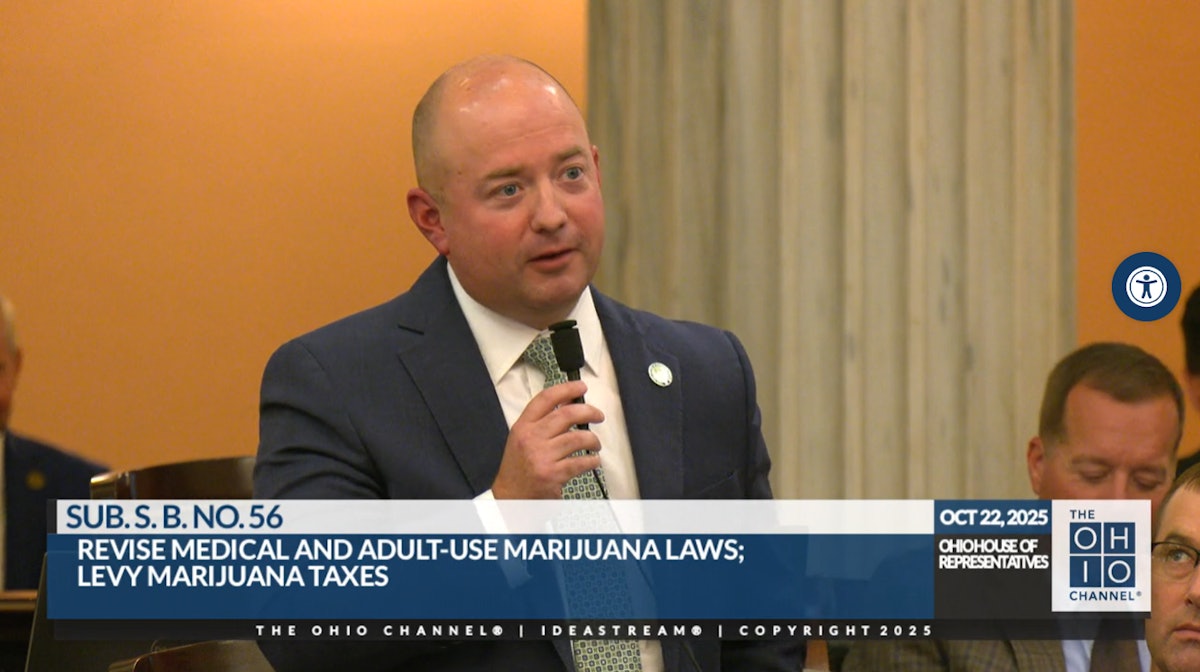
Ohio House lawmakers passed the 18th version of a bill on Oct. 22 that aims to alter the state’s adult-use cannabis laws that voters approved in 2023, while also creating a tightly defined regulatory framework for hemp products.
The 228-page legislation, Substitute Senate Bill 56, preserves many aspects of the voter-approved initiative, such as home grows (six per adult or 12 per household), sharing between adults 21 and older, and allocating 36% of cannabis excise tax revenues to local municipalities that host dispensaries.
However, the bill would prohibit public consumption at places like music concerts and bar patios, and those caught with cannabis purchased outside the state would be criminalized. No other state where cannabis is legal imposes such restrictions on out-of-state purchases, according to cannabis advocacy group NORML.
In addition, while adults could continue to home cultivate cannabis under the legislation, they’d be restricted to harvesting more than 2.5 ounces of flower, or roughly one plant, with a felony penalty for those who grow more than the number of plants allowed. Also, the bill intends to place a 35% THC cap on flower and a 70% THC cap on extracts for both medical and adult-use cannabis.
“This isn’t what Ohioans voted for, and the fact that this bill is being rushed through the Legislature, with almost no opportunity for public comment, indicates that lawmakers know they are undermining the will of the voters,” NORML Political Director Morgan Fox said in a public statement. “Regardless of where one stands on cannabis issues, everyone should be outraged at this.”
The substitute bill found bipartisan House support in an 87-8 vote on Oct. 22.
Rep. Brian Stewart, R-Ashville, who carried Sub. S.B. 56 in the House, said Wednesday on the chamber floor that the bill “preserves all of the core aspects” of what voters passed two years ago, including access to tested and regulated products from licensed dispensaries.
Stewart also argued that the Legislature has to act to preserve the 36% tax revenue fund for host communities after the Ohio Department of Taxation flagged language in the voter-approved initiative, suggesting that the language failed to properly appropriate the money.
“It was always going to require legislation in this chamber,” he said.
The substitute bill also intends to establish a legal pathway for licensed “hemp dispensaries” to sell regulated and tested intoxicating hemp products, defined as containing more than 0.5 milligrams of delta-9 THC per serving or 2 milligrams per package, or more than 0.5 milligrams of total non-delta-9 THC per package. These sales would be limited to those 21 and older. Those who sell intoxicating hemp products to those under 21 would be guilty of a misdemeanor on the first offense and a felony on a subsequent offense.
Meanwhile, cannabinoid hemp beverages would be defined and regulated differently with a $1.20-per-gallon excise tax (more on this later).
Stewart said provisions included in the 18th version of the substitute bill resulted from a “Venn diagram from hell” that attempted to balance individual liberties, consumer safety, the financial well-being of local communities, and the “need to protect the health and safety” of Ohio children.
“If you’re reading through it and you’re saying, ‘Rep. Stewart, I don’t like Section X, I don’t like Section Y,’ please know you’re in good company. I don’t either,” he said. “This is not the bill that I originally introduced. It’s not the bill that Representative [Tex] Fischer originally introduced. But it is a carefully crafted compromise that makes Ohio better.”
While the Senate passed its version of the legislation in February, cannabis advocacy groups like the Marijuana Policy Project applauded the House Judiciary Committee for sitting on the legislation for nearly eight months as a means to prevent recriminalization measures “pushed by the Senate.”
However, many House members said during this week’s floor debate that Gov. Mike DeWine’s executive order issued Oct. 8 – one that attempts to shut down hemp-derived cannabinoid product sales and initiate emergency rulemaking – spurred lawmakers to go back to the drawing board for a legislative fix.
DeWine showcased various intoxicating hemp products in packaging that mimicked popular candies, like Nerds, Sour Patch Kids and Gushers, during his Oct. 8 press conference.
After lawmakers were at an impasse, DeWine’s executive order represented a turning point on Sub. S.B. 56, Rep. Tex Fischer, R-Boardman, said before Wednesday’s floor vote.
“I think we all had an agreement that that was not the intent of the hemp legislation at the federal level or here in Ohio, but we did need to do something to protect kids from these products,” he said. “Some of these products are truly illicit and truly dangerous, and everybody, no matter how fervent of an activist on the hemp side of this issue you were, agreed something needed to be done.”
Legislative disagreements had revolved around Ohio businesses that would be negatively impacted by language in previous versions of the bill, Fischer said.
Under the House-passed substitute bill, places where children “walk freely,” like gas stations and grocery stores, would be prohibited from selling intoxicating hemp products, while certain intoxicating hemp retailers, such as a qualifying vape shop, would be “grandfathered in” for licensure.
For a retailer to qualify for a grandfathered-in hemp dispensary license, that retailer must have sold intoxicating hemp products on or before Aug. 30, and the store’s receipts from hemp and intoxicating hemp product sales must have exceeded 80% of its total gross receipts for either the past 12 months or the 2024 calendar year.
“What about those people that have poured their blood, sweat, tears, years of work, potentially millions of dollars into building a business living by the rules that we set out, whether they were adequate or not, they were not breaking the law,” Fischer said. “Those were the people that I was motivated to stand up for, and while this bill doesn’t do everything that I wanted or everything that others want, I believe we have arrived at a reasonable conclusion to allow those people to still stay in business, to grandfather them into this new regulatory regime.”
No one under the age of 21 would be allowed inside these hemp dispensaries, which would be prohibited from selling cigarettes, tobacco, and vape or electronic smoking products under the bill. No more than 400 hemp dispensaries would be allowed in the state, unless those grandfathered in exceed that number.
While the biennial license renewal fee for Ohio’s cannabis dispensaries is $70,000, the two-year renewal license fee for a grandfathered-in hemp dispensary would be $35,000 under Sub. S.B. 56.
Meanwhile, hemp beverages, which the substitute bill defines as “drinkable cannabinoid products,” would be regulated differently. In addition, these products would be classified as low-level DCPs (5 milligrams or less of total THC per serving) or high-level DCPs (5-10 milligrams of total THC per serving). Only one serving per container would be allowed.
Neither low-level nor high-level DCPs would constitute an “intoxicating hemp product,” with DCPs falling under a separate regulatory framework for manufacturers, distributors and retailers. Still, sales to those under 21 would be prohibited.
Ohio retailers with Class C liquor licenses, such as grocery stores that sell alcohol for carryout only, would be allowed to sell high-level DCPs. Meanwhile, Ohio retailers with licenses for on-site consumption, such as restaurants and bars, would be allowed to sell low-level DCPs.
While the substitute bill would allow DCP manufacturers to create higher-dose beverages that contain more than 10 milligrams of THC, they would be restricted to distributing and/or selling those products to out-of-state partners.
Fischer said there were a lot of wins “for us so-called ‘hemp-resentatives,’” in the substitute bill.
“Many of you heard from beverage manufacturers, bars, restaurants, retailers about how popular these products are, but there are also a lot of folks that weren’t yet comfortable stocking these products because of the regulatory uncertainty that is a result of our inability to previously come to an agreement here in Columbus,” he said. “I think this strikes the appropriate tone of a reasonable, fair and pro-business regulatory regime while still maintaining that these products and consumers should be safe.”
While it’s unclear if the Senate will agree to the House’s amended substitute bill or take the legislation to a conference committee for further debate – before possibly sending the bill to DeWine’s desk – the potential outcomes are significant for Ohio stakeholders: cannabis businesses, hemp businesses, consumers, patients and children.
Rep. Jamie Callender, R-Concord, a long-time advocate for cannabis reform in the Buckeye State, acknowledged the legislation “is not perfect” before voting to support the bill.
Callender said a “no” vote on the legislation represents allowing retailers to continue selling high-THC products to children walking home from schools with impunity.
“I imagine everybody in this room can find at least one thing they don’t like in the bill, one thing they think can be improved on,” he said. “You have my commitment. I’ll keep working with everyone to make it better, but I believe we have to act.”

Author: mscannabiz.com
MScannaBIZ for all you Mississippi Cannabis News and Information.

Older Adults Increasingly Identify as Cannabis Consumers

Kentucky Governor Touts Surge In Medical Marijuana Patient And Business Approvals As State Prepares For Program Launch

SCOTUS cannabis & guns case gets delay request (Newsletter: October 24, 2025)

Ohio House Passes Cannabis, Hemp Bill Resulting From ‘Venn Diagram From Hell’

What To Know About Cannabis And A Brain Aneurysm

MariMed to Expand Brand Distribution to New York

Time for a Cannabis Reboot: Local Roots, Fair Markets, Real Change

Ohio Health Agency Grants $400,000 To Fund Psychedelics Education And Training For First Responders, Doctors And More

Curio Wellness Acquires 4 Greenlight Dispensaries in Missouri

The best places to be high in Seattle

Colombia’s Bold Offer to Trump: Legal Weed Exports for Peace

Trump DOJ Asks Supreme Court For Delayed Schedule In Case On Marijuana Users’ Gun Rights

Whiskey Company Scales Back Operations, Citing ‘Consumer Shifts’ Toward Marijuana As Alcohol Alternative

Smart Cannabis: The AI Revolution No Operator Can Ignore

New Jersey Gubernatorial Candidates Need To Step Up For Cannabis Consumers (Op-Ed)

Millennials Are Spending Big on Luxury Travel

West Virginia Medical Marijuana Revenue Is Supposed To Support Drug Treatment Programs, But Sits Unspent As Officials Worry About Federal Prohibition

Frequent Marijuana Use Is Tied To Lower Risk Of Liver Disease From Alcohol, New Study Finds

Ohio bill to scale back cannabis legalization passed by House (Newsletter: October 23, 2025)

FDA Weighs Petition On ‘Significant Harm’ Of Marijuana Hair Testing Device’s Positive Results From Secondhand Smoke

Wisconsin Lawmakers Rally for Medical Cannabis Legalization in Committee Hearing

Massachusetts Campaign To Roll Back Marijuana Legalization Law Is ‘On Track’ To Make 2026 Ballot, Spokesperson Says

Village Farms Introduces Industry-First, One-Way Aroma Valve in Cannabis Packaging

Ohio House Passes Bill To Remove Voter-Approved Marijuana Legalization Protections And Restrict Hemp Market

Alert: Department of Cannabis Control updates data dashboards with full data for 2023

Connecticut Appoints The US’s First Cannabis Ombudsperson – Yes there is a pun in there and I’m Sure Erin Kirk Is Going To Hear It More Than Once!

5 best CBD creams of 2024 by Leafly

Recreational cannabis on ballot for third time in South Dakota

EU initiative begins bid to open access to psychedelic therapies
New Study Analyzes the Effects of THCV, CBD on Weight Loss

Free delta-9 gummies from Bay Smokes

5 best autoflower seed banks of 2024 by Leafly

Discover New York’s dankest cannabis brands [September 2024]

Press Release: CANNRA Calls for Farm Bill to Clarify Existing State Authority to Regulate Hemp Products

May 2024 Leafly HighLight: Pink Runtz strain

5 best THC drinks of 2024 by Leafly

Local medical cannabis dispensary reacts to MSDH pulling Rapid Analytics License – WLBT

6 best CBD gummies of 2024 by Leafly

Curaleaf Start Process Of Getting Their Claws Into The UK’s National Health System – With Former MP (Resigned Today 30/5/24) As The Front Man

Horn Lake denies cannabis dispensary request to allow sale of drug paraphernalia and Sunday sales | News

5 best delta-9 THC gummies of 2024 by Leafly

The Daily Hit: October 2, 2024

Mississippi city official pleads guilty to selling fake CBD products

Nevada CCB to Accept Applications for Cannabis Establishments in White Pine County – “Only one cultivation and one production license will be awarded in White Pine County”

Weekly Update: Monday, May 13, 2024 including, New Guide for Renewals & May Board meeting application deadline

5 best THCA flower of 2024 by Leafly

6 best hemp pre-rolls of 2024 by Leafly

PRESS RELEASE : Justice Department Submits Proposed Regulation to Reschedule Marijuana
Trending
-

 California Cannabis Updates1 year ago
California Cannabis Updates1 year agoAlert: Department of Cannabis Control updates data dashboards with full data for 2023
-

 Breaking News1 year ago
Breaking News1 year agoConnecticut Appoints The US’s First Cannabis Ombudsperson – Yes there is a pun in there and I’m Sure Erin Kirk Is Going To Hear It More Than Once!
-

 best list1 year ago
best list1 year ago5 best CBD creams of 2024 by Leafly
-

 Business1 year ago
Business1 year agoRecreational cannabis on ballot for third time in South Dakota
-

 Business1 year ago
Business1 year agoEU initiative begins bid to open access to psychedelic therapies
-

 cbd1 year ago
cbd1 year agoNew Study Analyzes the Effects of THCV, CBD on Weight Loss
-

 Bay Smokes1 year ago
Bay Smokes1 year agoFree delta-9 gummies from Bay Smokes
-

 autoflower seeds1 year ago
autoflower seeds1 year ago5 best autoflower seed banks of 2024 by Leafly



